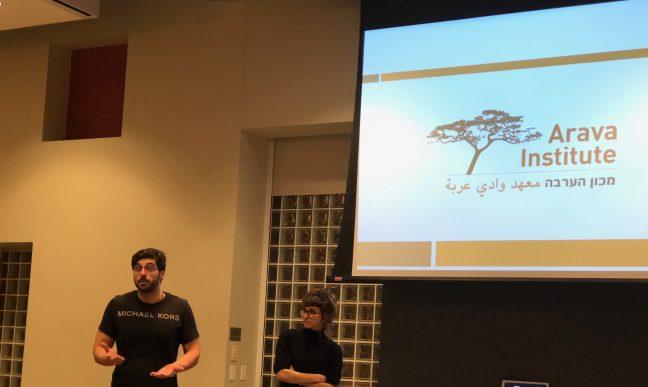The University of Wisconsin Hillel Foundation hosted two speakers Tuesday evening, one Israeli and one Palestinian, to discuss the difference between their backgrounds and finding common ground through the Arava Institute of Environmental Studies, an environmental non-profit based in the Middle East.
Rachel Szor and Mohmood Al Ramahi were students in the Arava Institute in 2017 and 2013-14, respectively. They discussed how the emphasis on starting dialogues is what makes the institute unique, and how they united over environmental issues as a common interest.
Both Szor and Al Ramahi said they were met with skepticism by friends and communities when they decided to attend the institute. The idea of a program with both Israelis and Palestinians was unusual.
“You can yell at someone [in discussion] and then have to go to dinner with him,” Szor said.
Community reacts to Walker executive order targeting anti-Israel businesses
Szor wasn’t exposed to a Palestinian narrative until she moved away from her home city, Tel Aviv, to Nazareth when she was 17. This was her first time living in a mixed community where neither the Israeli nor Palestinian voice was the strongest.
While Szor celebrated Israeli Independence Day, Al Ramahi and others in his community saw it as “the day we lost our houses.” While Al Ramahi grew up in Jordan, he said he still experienced the effects of Israeli occupation.
“I grew up most of my life in Jordan, I’m one of the lucky Palestinians who has a Jordanian passport,” Al Ramahi said.
ASM indefinitely postpones divestment resolution after hours of heated debate
While at the Arava Institute, Szor and Al Ramahi found environmental issues are not stressed enough by the Israeli and Palestinian people, as political conflict takes precedent.
The Arava Institutes believes “water knows no borders,” and the environment should not be the victim of political differences.
“I think the first thing I learned in the Institute, was that before trying to say to them exactly what I know and what I learned, was to also listen to them, to try to open my heart and to understand where they come from,” Szor said.














